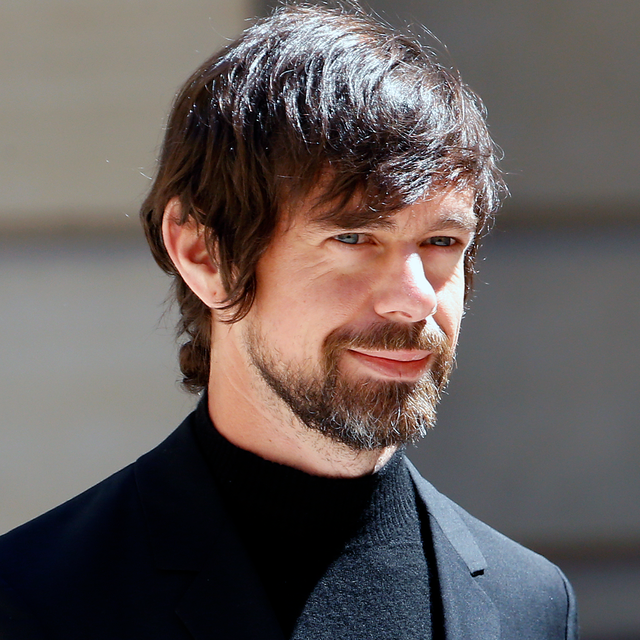- Twitter co-founder and CEO Jack Dorsey revealed that he eats only seven meals per week.
- The 43-year-old says his meal is “just dinner” and that it works for him, even though critics view it as disordered eating.
- Experts explain why Dorsey’s extreme form of fasting is problematic for the average person.
Twitter co-founder Jack Dorsey recently answered people’s questions about how the social media giant operates in a new video interview hosted by Wired. But he also offered a few details about himself, including what he eats in a day. The 43-year-old CEO confirmed that he eats exactly seven meals per week. “Just dinner,” he said.
The question he answered in the video likely referenced a CNBC article from last year, which highlighted that Dorsey only ate five meals a week at the time—and fasted all weekend. (He’s also said he tries to meditate for two hours a day and walks five miles to work daily.) Understandably, it caused quite the controversy.
“The first time I did it, like day three, I felt like I was hallucinating. It was a weird state to be in,” Dorsey said on the Ben Greenfield Fitness: Diet, Fat Loss and Performance podcast. “But as I did it the next two times, it just became so apparent to me how much of our days are centered around meals and how—the experience I had was when I was fasting for much longer, how time really slowed down.”
While the regimen is pretty extreme, Dorsey’s plan is essentially a very extreme form of intermittent fasting, says Beth Warren, R.D., founder of Beth Warren Nutrition and author of Secrets of a Kosher Girl, which does have some benefits backed by research.
“Short-term studies show intermittent fasting may enhance immune responses that improve blood lipids, blood sugar, blood pressure, and inflammation,” she says. One of the most popular intermittent fasting plans, the 16:8 diet, focuses on fasting for 16 hours and eating within an 8-hour window with no calorie restrictions.
But Dorsey says his fast lasts 22 hours, nearly all day. It also has a name: OMAD (one meal a day).
Wait, why would anyone want to eat just one meal a day?
Here’s why it might work for someone like Dorsey, a.k.a. a billionaire tech CEO in Silicon Valley: “It takes round-the-clock thinking about food and what you’re going to have for breakfast and lunch off the table,” says Julie Upton, M.S., R.D., co-founder of nutrition website Appetite for Health. “In a way, it can free you from constantly thinking about food.”
Of course, this isn’t an eating schedule that’ll work for most people—or really anyone who doesn’t have a life or budget like Dorsey. He says dinner for him (usually between 6:30 p.m. and 9 p.m.) is a “really big meal” with chicken, fish, or steak, and “lots of greens,” like spinach, asparagus, or Brussels sprouts. Dark chocolate and berries top off dessert, with the occasional glass of red wine.
But is this realistic? Or even healthy?
While he hasn’t confirmed it, it’s fair to assume that Dorsey has the resources to check in with medical professionals and nutrition experts while maintaining such a strict plan. “Having outside eyes creating a single meal that meets your energy, protein, and micronutrient requirements, as well as being tasty for the day, is essential to doing something like this,” says Scott Keatley, R.D., who focuses on helping people manage conditions related to nutrition such as diabetes, obesity, and eating disorders.
But most people “would fail” if they tried to eat this way, he says, and wind up with brittle hair, dull skin, and the loss of lean muscle—a lack of calories and nutrients can quickly lead to malnutrition. There are also social drawbacks to consider. “It’s pretty tough to be the only one not eating at social functions,” Warren points out.
And, while Dorsey seems okay with having one meal a day, it’s a slippery slope. “It can quickly fall into a diagnosable eating disorder,” Keatley says. In fact, his initial interview drew swift criticism because many people, including experts, viewed it as disordered eating.
Bottom line: While experts say less extreme versions of intermittent fasting can have benefits for some people, eating just one meal a day isn’t the best move. “No, just no,” Keatley says.













